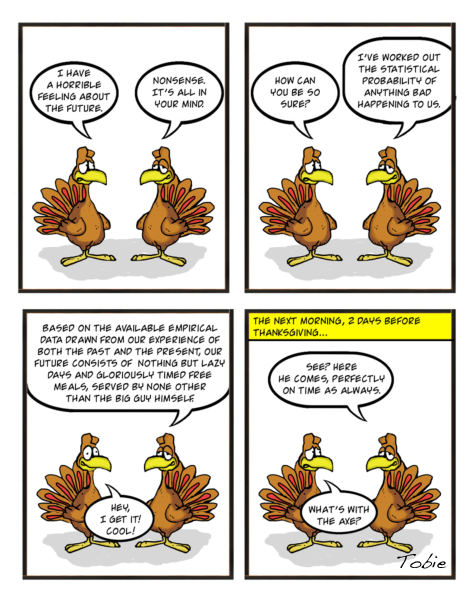I posted this 6 years ago, but a re-post seems appropriate at this time. As I am writing, the entire globe is yearning for a “return to normalcy.” We are using our memories of the past to construct our vision of an ideal future, and this enables anticipation – that powerful and enchanting substitute for real faith.
Ironically, the focus of true faith is presence. Translated into time, that means immunity to the regrets or nostalgia of the past (including bitterness towards those who messed up our past), and immunity to the fear or anticipation of the future (including an attraction to those who can lead us to a better future). It is the ability to experience the fullness of God in the now, regardless of the circumstances accompanying it. Thus, it is ultimate freedom.
Presence, of course, is not a type of “awareness” or “mindfulness” sought for its own sake, through meditation, contemplation or any such strategy. It is Christ with us. There simply is no other way in which frail humans made of dust can partake of the eternity which is to be found in God alone.
 I am indebted to Nassim Nicholas Taleb for the turkey analogy. Taleb borrowed it from the philosopher Bertrand Russel and used it in his provocative book The Black Swan to illustrate the folly of predicting the future by using the past as a point of reference. Along with scholars such as Daniel Kahneman (Fast and Slow Thinking) and Daniel Gilbert (Stumbling on Happiness) Taleb points out that humans are outrageously irrational when they try their hand at forecasting the future.
I am indebted to Nassim Nicholas Taleb for the turkey analogy. Taleb borrowed it from the philosopher Bertrand Russel and used it in his provocative book The Black Swan to illustrate the folly of predicting the future by using the past as a point of reference. Along with scholars such as Daniel Kahneman (Fast and Slow Thinking) and Daniel Gilbert (Stumbling on Happiness) Taleb points out that humans are outrageously irrational when they try their hand at forecasting the future.
The topic intrigues me. As you may know, humans are most egotistical and idolatrous when they imagine what their own futures are going to look like. It is not our photo albums or mirrors that inspire self-worship, but our projections of an idealised future self. Our past and present selves are simply too real to be worthy of deification, and so we use the future to shape and mould the image of I.
All of this becomes rather interesting if we consider that the first motivational speaker in the history of the universe was a serpent. He convinced Eve that she could be more than what she was. He managed to divert her gaze from what she was and had in God to what she could have and be in herself, and thus from the present to the future. “Eve, you can maximise your potential. Eve, you can fulfil your destiny.”
Ever noticed that God identifies himself as “I am”, even in His self-declaration in Christ, but that Satan identifies himself as “I will”? Note the contrast:
I am who I am. Exodus 3:14
I am the bread of life John 6: 35, 48
I am the light of the world John 8: 12, 9:5
Before Abraham was, I am John 8: 58
I am the door John 10:9
I am the good shepherd John 10:11
I am the resurrection and the life John 11:25
I am the way, the truth, and the life John 14:6
I am the true vine John 15:1
“How you are fallen from heaven,
O Day Star, son of Dawn!
How you are cut down to the ground,
you who laid the nations low!
You said in your heart,
‘I will ascend to heaven;
above the stars of God
I will set my throne on high;
I will sit on the mount of assembly
in the far reaches of the north;
I will ascend above the heights of the clouds;
I will make myself like the Most High.’
But you are brought down to Sheol,
to the far reaches of the pit. Isaiah 14:12-15
Reading Isaiah 14, it is clear why John tells us that “the devil has been sinning from the beginning” (1 John 3:8). The seed of the serpent was forged in eternity before time, when the contentment and perfection of “I am” was replaced with the desire of “I will”. And so “being” was replaced with “becoming”, beholding with visioneering, the Creator with the creature, rest with striving, contentment with anticipation, the now with the then, the “thank you” with “if only”, the treasure of having with the emptiness of wanting.
Of course there was only one way in which the toxic seed of the serpent could be injected into God’s creatures, made in his image and likeness, birthed into his rest, partaking of his identity of life, enjoying the abundance of his provision. They too were to utter the venomous “I will…”
And so the serpent whispered to them: “You will… be as God.”
The moment they believed the promise, and acted on their newfound faith, they too were brought down to Sheol. Note that the first sin was in fact the second sin, but that it was like the first sin.
The enmity between the seed of the woman and the seed of the serpent began here. The “I will” became a collective in Genesis 11, when an entire nation aspired to penetrate the heavens and found a name and identity for themselves. “I will” became “we will”, and so the seed of the serpent that had become the seed of humanity became the seed of the kingdoms of this world.
Two Seeds, Two Births, Two Confessions
The enmity continues throughout Scripture and finds its ultimate manifestation in two births. The first came into the world and restored our understanding of the “I am” identity, the partaking in that which is and cannot become, for how can perfection be more than what it is?
This was the one who defied the arrogance of the serpent and his offspring, by saying “not my will, but yours be done.” This was the one who defined divinity in his “I am” statements, quoted above. This was the one of whom was said that he, “though he was in the form of God, did not count equality with God a thing to be grasped.” In each and every way he contradicted the aspirations of the serpent and his offspring.
Of course the serpent tempted him in the traditional, tried and tested way that had successfully led the whole word astray: “All these I will give you, if you will fall down and worship me.”
Note the underlying transactional and graceless philosophy that has governed all human relationships and marriages since the fall: “I will, if you will.”
But Christ resisted. As he would later say: “For I have come down from heaven, not to do My own will, but the will of Him who sent Me.” In the same manner, he taught us to pray “your will be done, on earth as it is in heaven.”
The first birth manifested the seed from heaven, and revealed its nature as that which is and cannot become, which has and cannot want, which beholds and does not imagine.
If the first birth was God’s Messiah and a revelation of his perfection, then the second birth is Satan’s messiah and a revelation of his imperfection and subsequent striving to “become”. As the seed of the woman brought Christ into the world, the seed of the serpent brought forth the exact opposite and antithesis of Christ, aptly referred to as “Antichrist”.
Naturally, the Antichrist is the incarnation of the human will and its striving, and so, in accordance with the first and second sin, and all the sins since then, he is made manifest in one way only: “He will oppose and will exalt himself over everything that is called God or is worshiped, so that he sets himself up in God’s temple, proclaiming himself to be God” (2 Thessaloninas 2:4). Naturally, for his coming “will be in accordance with how Satan works” (verse 9).
These insights reveal why it is futile and sinful to obsess about “tomorrow”, and why God has a habit of only providing enough manna for “today”. A focus on tomorrow is an inevitable invitation to idolatry, and so we are warned:
Now listen, you who say, “Today or tomorrow we will go to this or that city, spend a year there, carry on business and make money.” Why, you do not even know what will happen tomorrow. What is your life? You are a mist that appears for a little while and then vanishes. Instead, you ought to say, “If it is the Lord’s will, we will live and do this or that.” As it is, you boast in your arrogant schemes. All such boasting is evil. James 4:13-16
Do not boast about tomorrow, for you do not know what a day may bring. Proverbs 27:1
So do not worry, saying, ‘What shall we eat?’ or ‘What shall we drink?’ or ‘What shall we wear?’ For the pagans run after all these things, and your heavenly Father knows that you need them. But seek first his kingdom and his righteousness, and all these things will be given to you as well. Therefore do not worry about tomorrow, for tomorrow will worry about itself. Each day has enough trouble of its own. Matthew 6:31-34
Give us today our daily bread. Matthew 6:11
Then the Lord said to Moses, “I will rain down bread from heaven for you. The people are to go out each day and gather enough for that day. In this way I will test them and see whether they will follow my instructions… The Israelites did as they were told; some gathered much, some little. And when they measured it by the omer, the one who gathered much did not have too much, and the one who gathered little did not have too little. Everyone had gathered just as much as they needed. Then Moses said to them, “No one is to keep any of it until morning.” However, some of them paid no attention to Moses; they kept part of it until morning, but it was full of maggots and began to smell. So Moses was angry with them. Exodus 16:4, 17-20
Needless to say, the above insights have made me not only highly suspicious of the motivational revolution of the last few decades, but especially of its recent infiltration into the church world. A quick visit to the Google Ngram Viewer (an online phrase-usage graphing tool indicating usage of words and phrases in more than 5 million prominent publications) reveals the following disturbing trend:

All of this has prompted me to rethink the contemporary hallowed usage of the word “destiny” amongst Christians. Wondering if the word is actually used in the Bible as it is currently being used on the covers of Christian bestsellers, I went to my concordance. This is what I found:
But as for you who forsake the Lord and forget my holy mountain, who spread a table for Fortune and fill bowls of mixed wine for Destiny, I will destine you for the sword… Isaiah 65:11-12
Oops…
Correct me if I am wrong, but it would appear that even the great apostasy is no longer in the future, but in the present.






 At the root of all injustice lies a dream.
At the root of all injustice lies a dream. Romans 7 may very well be the most misunderstood chapter in the Bible. It is here where we read the following words:
Romans 7 may very well be the most misunderstood chapter in the Bible. It is here where we read the following words: With our previous definition of heresy in the bin (a doctrine or opinion at variance with the accepted or orthodox doctrine), we are ready to take a step closer to the way the Bible defines the term. Ironically, we will see that the definition that we have rejected is not merely incorrect, but in fact an excellent display of heretical thinking.
With our previous definition of heresy in the bin (a doctrine or opinion at variance with the accepted or orthodox doctrine), we are ready to take a step closer to the way the Bible defines the term. Ironically, we will see that the definition that we have rejected is not merely incorrect, but in fact an excellent display of heretical thinking.
